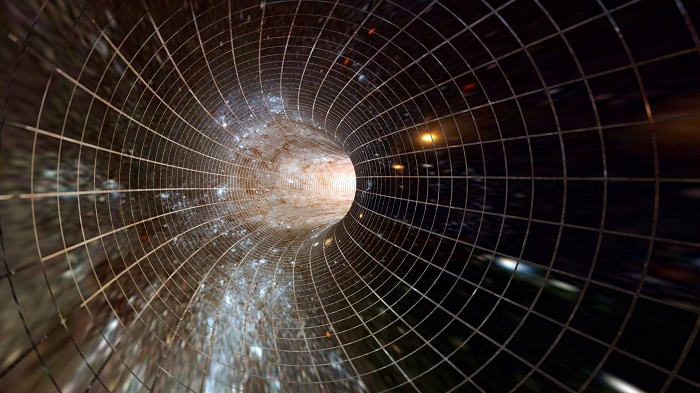A radical new hypothesis claims to have a simple explanation for dark energy

Now, a new study could fix all that. The answer? Dark energy makes perfect sense... assuming one of the most fundamental laws in the Universe was violated without us noticing.
That fundamental law is the conservation of energy, and it`s a biggie. It`s the law we all learnt in high school science that states energy in an isolated system can neither be created nor destroyed - it can only change forms. And it underpins most basic physics.
But the new study argues that if the Universe was subtly leaking energy in its earliest days, it could explain the dark energy we see today. Importantly, the team also suggests that the law could have been violated in such a small way, we wouldn`t have even noticed it.
So why the need for such a drastic hypothesis? It all comes down to the issues we have with dark energy, and to explain those, we need to go back to 1917, when Einstein was trying to figure out why the Universe was static, not expanding or shrinking, which was the assumption at the time.
To explain the lack of gravitational shrinking, Einstein figured there must be something out there that was pushing back against gravity at the cosmic scale, and he called it the cosmological constant.
But he pretty much scrapped the idea in 1929, when astronomer Edwin Hubble saw the first signs the Universe was expanding, throwing a hypothetical spanner into his calculations.
Then, in the early 1990s, scientists showed the Universe was expanding at an accelerating rate, and Einstein`s constant became relevant again.
Researchers figured that constant Einstein was investigating all those decades ago must have actually been what we now call dark energy.
So what is dark energy? The general idea is that it`s a cosmological constant that arises from empty space.
Thanks to quantum mechanics, we know that empty space is never actually empty - it`s filled with strange quantum particles and energy popping in and out of existence, and one of those strange particles could carry a repulsive force, aka dark energy.
The only problem is that the amount of `dark energy` we predict should arise through that process is far more than can be explained by the observed expansion of the Universe - up to 120 orders of magnitude more, to be precise.
That means either we`re not measuring it properly, or we still don`t understand where dark energy comes from in the first place.
This new study suggests that the latter possibly could be in play, and comes up with a new hypothesis. What if the Universe was subtly leaking energy in its early days, and that lost energy set the value of dark energy?
"In the model, dark energy is something that keeps track of how much energy and momentum has been lost over the history of the Universe," one of the team members, Alejandro Perez, told Science.
The basis of this new hypothesis is an alternative model of general relativity that Einstein came up with in the 1910s called unimodular gravity, which states that energy doesn`t need to be conserved.
If this unimodular gravity model is applied to the calculations, then the value of the cosmological constant would match perfectly with the observations of our Universe`s accelerating expansion, the team states.
Importantly, it also doesn`t necessarily mess with our current understanding of the Universe too much. Although the disappearance of energy in the early Universe affects the values for dark energy significantly, it wouldn`t actually affect much else, or be noticeable by today`s experiments.
"Energy from matter components can be ceded to the gravitational field, and this `loss of energy` will behave as a cosmological constant - it will not be diluted by later expansion of the Universe," one of the team, Thibaut Josset, told Lisa Zyga from Phys.org.
"Therefore a tiny loss or creation of energy in the remote past may have significant consequences today on large scale."
There`s a big problem here though - if the disappearing energy didn`t leave any lasting effects on the Universe, other than altering the value of dark energy, then there`s no way for us to test whether this hypothesis is true or not.
"Our proposal is very general, and any violation of energy conservation is expected to contribute to an effective cosmological constant. This could allow to set new constraints on phenomenological models beyond standard quantum mechanics," Josset told Phys.org.
"On the other hand, direct evidence that dark energy is sourced by energy non-conservation seems largely out-of-reach, as we have access to the value of lambda [the cosmological constant] today and constraints on its evolution at late time only."
So for now, this hypothesis remains just that - a hypothesis that hasn`t been tested. But the physicists say they want to investigate the possibility further in the future.
"It`s in no way definitive," Lee Smolin, a theorist from the Perimeter Institute for Theoretical Physics in Waterloo, Canada, who wasn`t involved in the study, told Science. "But ... it`s a new idea that could possibly be right and thus is worth getting interested in."
/Science Alert/















































